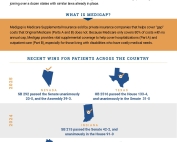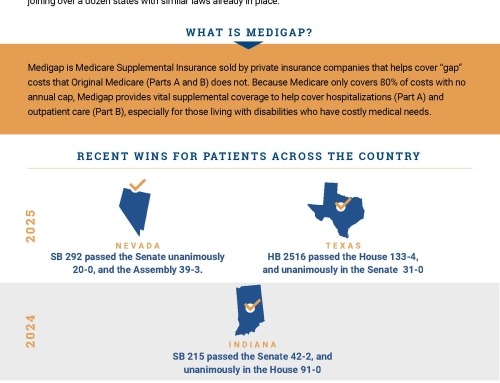In this Issue:
- Ask the Doctor
- Phosphorus: A Hidden Challenge in Dialysis
- The Importance of Immunizations for People with Kidney Disease
- Preventing Infections in Hemodialysis
- Patience and Strength – A Caregiver’s Journey
- A Faithful Kidney Patient Caregiver’s Journey
- Why Medicare’s Payment System Keeps New Dialysis Drugs from Reaching Patients
- Kidney Friendly Recipes
President’s Message

Greetings to all readers of The Kidney Citizen! We at Dialysis Patient Citizens (DPC) Education Center are committed to providing dialysis patients and caregivers with the information they need to live better, longer lives. In this issue, I’d like to highlight the importance of innovative treatments that can improve the health and well-being of you and your loved ones.
Thanks to ongoing innovation, new therapies are helping patients control phosphorus levels—an essential factor in preventing complications like clogged arteries and unhealthy veins, which often make patients ineligible for transplant. Too often, patients only learn about the importance of their phosphorus levels when they are laying in a hospital bed. But knowledge is power, and with the right education, patients can take proactive steps to protect their future.
Previously, many patients relied solely on dietary restrictions and traditional phosphate binders that were difficult to tolerate. However, new therapies offer more effective ways to regulate phosphorus with fewer side effects, giving patients a better chance at maintaining their health and preserving their eligibility for transplant. Understanding these treatments and how to access them is essential for every dialysis patient.
Innovation in dialysis care goes beyond phosphorus management. Scientists have developed innovative treatments that help prevent infections, improve access site health, treat anemia, and even reduce the severe itching (pruritus) that many dialysis patients experience. These advancements can make life on dialysis more manageable and help patients not just manage their condition, but thrive in the process. However, in order to reach their health goals, dialysis patients need to know what is available to them. That’s where DPC’s Education Center plays a crucial role.
DPC’s Education Center provides the resources patients need to stay informed about the latest therapies. Through online courses, expert guidance, and dialysis patient community support, we ensure that dialysis patients have the tools to advocate for themselves and make educated decisions about their care. No patient should feel left in the dark about treatment options that could change their life.
Unfortunately, current Medicare payment policy is not favorable to new therapies, which has made providers reluctant to offer them. DPC has been focused on addressing this problem in Washington.
As dialysis care continues to evolve, we are dedicated to keeping you informed. We encourage you to explore the DPC Education Center and continue reading The Kidney Citizen to stay up-to-date on the latest innovations in kidney care.
If you have any questions, please don’t hesitate to reach out. We are here to help.
Thank you for being a part of our community!
Sincerely,
Merida Bourjolly
President of DPC Education Center Board of Directors
CEO’s Message

As we celebrate the 20th anniversary of Dialysis Patient Citizens (DPC) and reflect on our progress, we are also looking ahead to the opportunities and challenges facing the dialysis community. One of the most pressing concerns for DPC and dialysis patients today is the growing gap between innovation and care. While exciting new therapies and treatments are emerging, too many patients are left behind due to outdated payment policies and the resulting underinvestment that makes innovative treatments inaccessible. We are committed to fixing that.
One of the causes of this challenge is that Medicare payments from the Centers for Medicare & Medicaid Services (CMS) are lagging increases in providers’ costs, which restrict the system’s ability to provide new treatment options, staff, and technology. This ultimately impacts the quality of care for patients. Even when breakthroughs in dialysis treatment become available, patients are not always informed about or granted access to them. This must change.
One example is the limited adoption of new treatments like HIF-PH inhibitors, innovative drugs developed to treat anemia in dialysis patients. While these medications were expected to provide a more convenient alternative to traditional infusions, Medicare reimbursement concerns led to slow adoption, with some dialysis clinics unable or unwilling to offer them. There is also slow uptake of a new therapy to help reduce bloodstream infections for catheter patients.
DPC is committed to advocating for policies that realign dialysis payments to better serve patients. Fair and sustainable reimbursement ensures every patient receives the highest quality care possible.
With a new administration in place, we have an opportunity to push for much-needed reforms, just as we have many times before during previous administrations of both political parties. President Trump has shown his commitment to kidney patients before by signing an Executive Order during his first term to promote home dialysis and transplantation. We will look to build on that progress and use the opportunities that new leadership in government provide, whether that is to improve dialysis funding, expand access to innovative treatments, or strengthen support for patients.
We will continue working to ensure policymakers recognize the urgent needs of the dialysis community. We must keep our voices strong, our advocacy focused, and our mission clear: improving the quality of life for all dialysis patients. With your continued support, we can make real progress in 2025 and beyond.
Thank you for being a part of this fight.
Sincerely,
Hrant Jamgochian, J.D., LL.M.
Chief Executive Officer, Dialysis Patient Citizens










